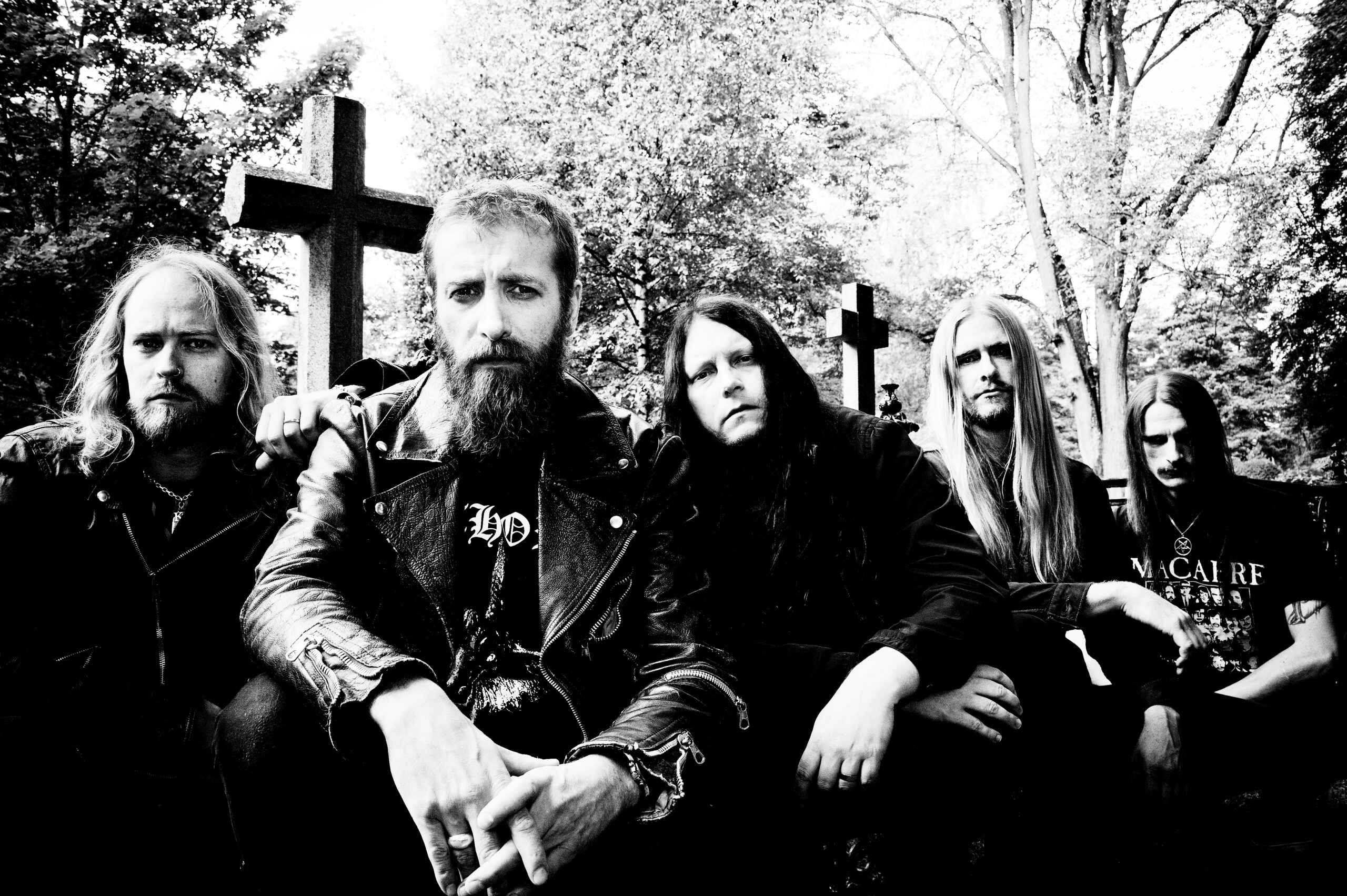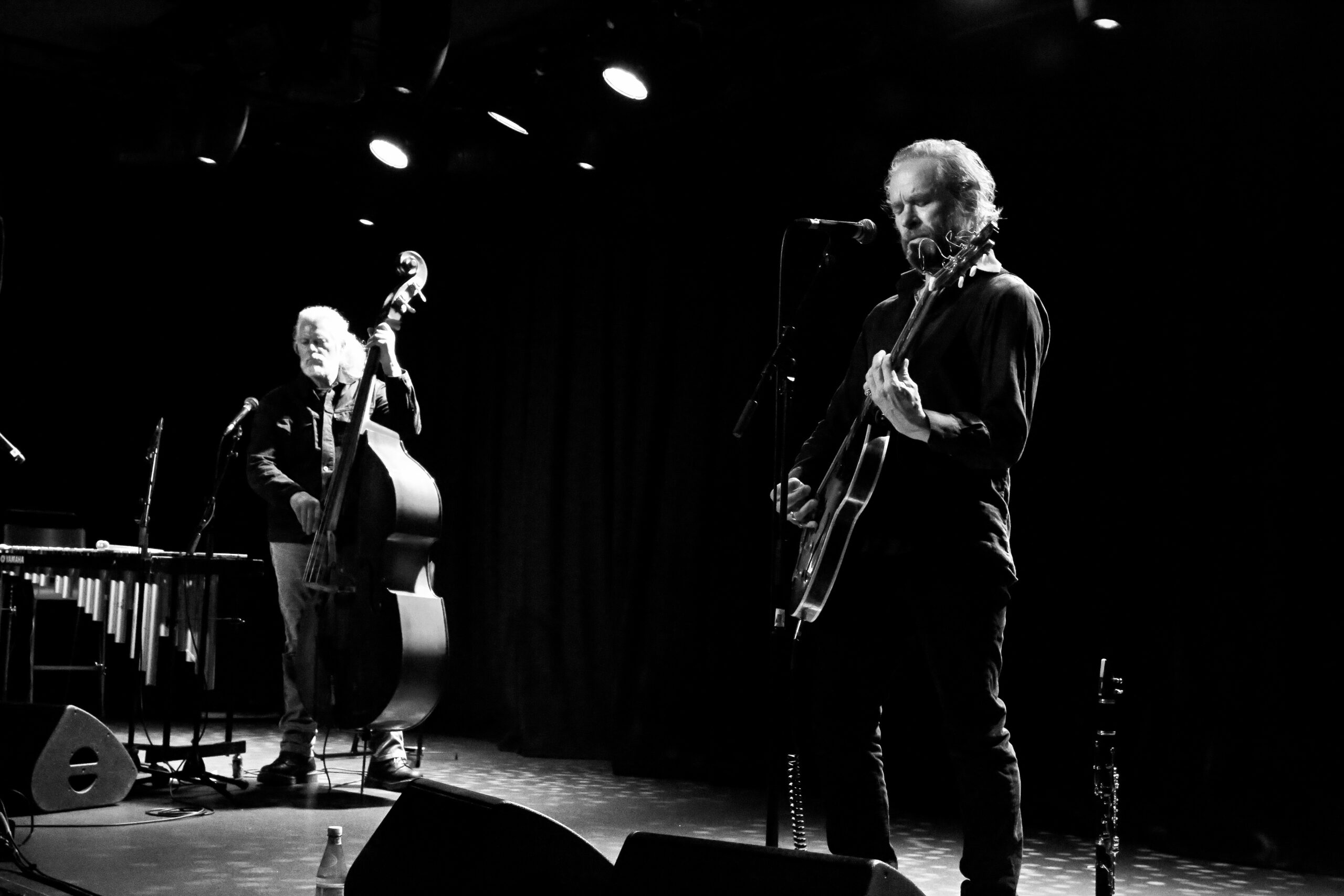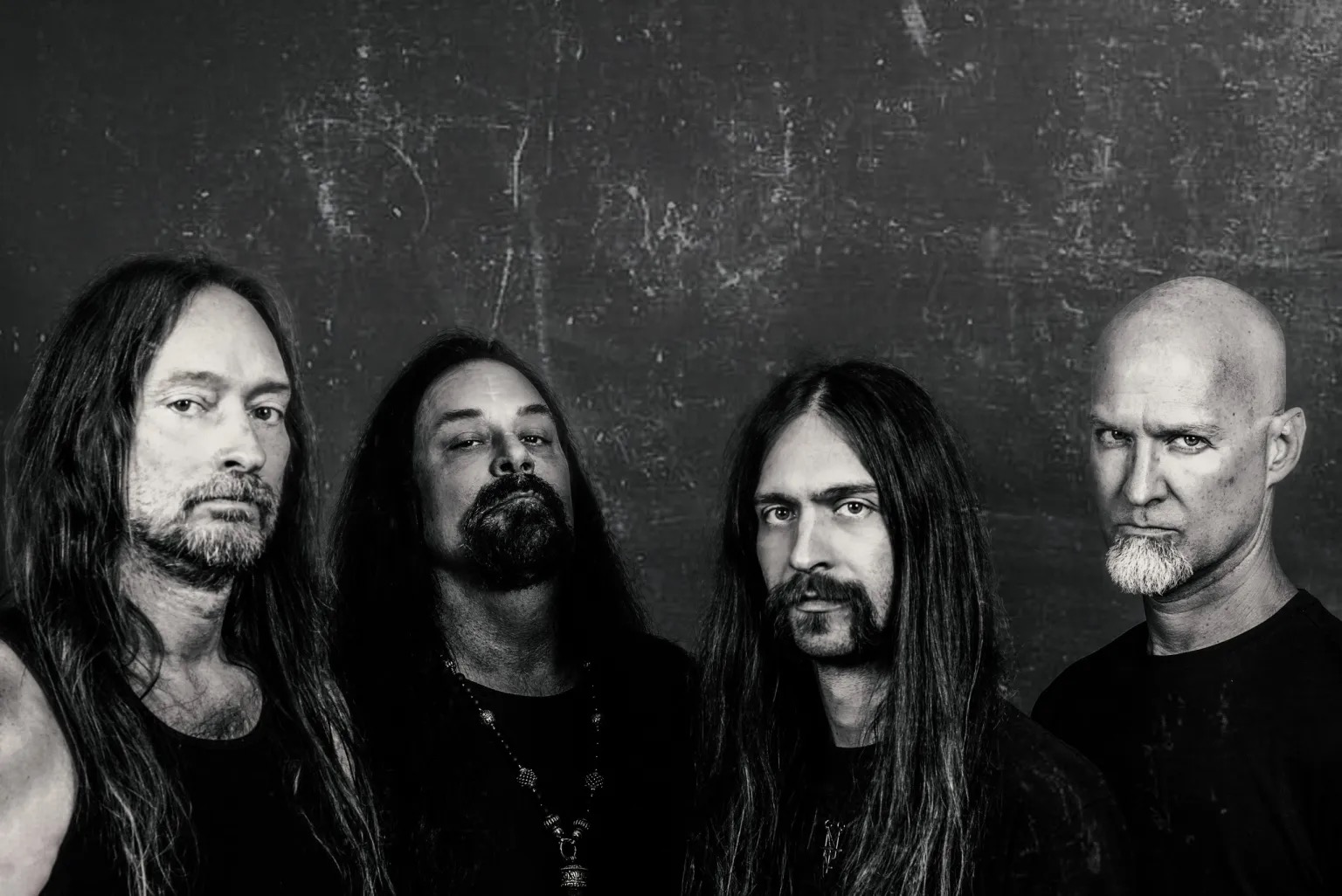What’s past is prologue, and Down To The River, the Allman Betts Band 2019 debut, is soon to be washed away by the remarkable double album, Bless Your Heart. In one sense, a continuation of the journey the band began in Muscle Shoals in 2019, Bless Your Heart concludes the band’s business in that hallowed place. Yet, it’s more than that. The record ebbs and flows over a much-expanded runtime, taking in influences only hinted at on the previous outing. As Devon is fond of saying, Down To The River was the postcard, while Bless Your Heart is the letter. We were lucky enough to speak to Devon to discuss the foundations of the album, the expanded influences and the difficulty of releasing an album at a time of global lockdown. As we dial in, we find him in a relaxed mood, laid out on the sofa and eager to talk about a hugely important album for the band.

How are you doing?
Oh Man, just living the dream, right? We’re all trying to adapt here. I’m alright, you know, I’ve been on tour since 2004, so this is my first summer off in 16 years. My literal first summer off.
Woah…
I’m enjoying it, to a degree, but I miss what everyone else misses, which is connecting and sharing that energy.
I can imagine, I was looking at some of the online things you’ve been doing and, like a lot of artists, trying to find ways to do something different through all this and it’s cool you’re able to do that, but at the same time you must feel something of a disconnect…
Like sex with a condom, right? [Laughs] You’re still doing the thing but… meh… It’s tough man! I mean, I’m glad there’s some way to connect, but good lord! We do thrive on that energy. There’s something magical about when the lights go down and the kick drum starts up. That’s real shit man, that’s, you know… it’s weird to see baseball and have a guy crack a home run and not hear 60,000 screaming lunatics. It’s a little weird. But, you know, I guess, we want to keep everybody safe, and we’ve got to barrel through this and, hopefully, sooner rather than later, we all get together again.
Some of the things you’ve been doing though, like the “We’re still together” series, you do have some element of interaction with fans writing to you and responding, which I suppose is the best you can hope for right now.
So far, yeah. Once we got sent home off the tour, I pretty much dove right into that and I was doing a couple a week. And the only reason that really kind of stopped, or at least paused, was because we started to do the full band live streams and we’re starting to do Drive In sows, which will be very cool and interesting as well. Yeah, I mean, it was kind of cool being able to set up a TV studio in my house and we had a big screen tv up on the pool table so, as I’m playing, I could read where everybody’s from – what they’re saying and what they’re drinking… it was fun for a while.
I’ve been listening a lot to the new record, and it’s got such energy and it feels like a record that’s meant to be played live… it must be hard bringing out an album at the point where everything’s kinda stopped.
Yeah, that was a question we had at a meeting with the whole team – our record label, BMG, our managers, and we all sat down and we batted the ball around and we tried to figure what we could do with the record. You know, should we put it to next year when we can tour in support of it. I think I was the first one to speak up and say “people need this music now. They need it now more than ever.” You know? I think, if anything, people have the time to have a love affair with it. They have a good, long time to revel in the nooks and crannies of it. Because it’s a lot different to the first record. The first record was kind of a post card – “hey! We’re a band, here we are! How’s it going?” And this is more of a detailed, long revealing letter. And I think whether we start touring in November, or April, or whenever it is, the people who have fallen in love with the album will be dying to see it played live.
I’m delighted it’s a double album because, like you say, it’s like a detailed letter. You gave an interview a couple of years ago and you were talking about developing albums and you made an interesting point that it’s like when film makers get together and discuss what they want to do and all the shots and all the angles… When you thought about doing this record, did you originally conceive it as a double album, or did you have a general idea in mind that expanded as the songs came together?
Well, I think once Dwayne bought in the twelve-minute instrumental, we felt “oh shit, it’s a double record!” [Laughs] I tell you what, that’s a really good question, Phil – “did you guys talk about what you wanted to do for this one? Was there a discussion and what was in that discussion?” You know, honestly, we didn’t really this time. We did the first time, because we were going on the maiden voyage – what moods did we want to invoke, what bit of our record collection did we want to pull from. We said: The Stones and The Band and some R&B and whatever. But, for this record, we were already a song-writing team. So, we didn’t really have to discuss it, but we did notice that there was a decided Southern theme in the record. And, when we had the first handful of songs, we knew the direction of the record. We knew that any song that would come after these first five would really have to go with them and live in the same space and dance with them in the appropriate way.
To be quite honest, it could have been nine songs like the last record, it could have been sixteen. It just ended up where it ended up. There was one other song that we had really high hopes for – it was called “call my name” and it was a very, kind of, open, strummy, California surf kind of song and it just didn’t fit and it was a killer song, it was one of mine. We all loved it, but we were like “wow, stylistically it just doesn’t fit.” And it almost sounded like something I’d put on a solo record anyway, not much of an Allman-Betts kind of piece. So, yeah, I think when we got to thirteen and, even though I made a joke about it, having a twelve minute song in there, which is taking up the space of three songs, it’s really like having a fifteen / sixteen song record. There certainly wasn’t a “hey, let’s go do a double album for the second record.” That was never a thing. But, when you hit a certain running time, there’s no other way to do it, so it just unfolded naturally. Maybe, when they made the Godfather, did they think “this is going to be three hours,” or “how the hell do we trim it?” You know, hopefully, once you get the concept that you’re aiming for, then whatever happens, happens.

One of the things I look for in pretty much any record is the ability to put it on and let it run- it’s a journey. And I think that, for any band, one of the hardest things to do is to try and create that journey and, obviously, there’s a couple of elements to that – sequencing, once you have the songs and the other is what you just said, having the realism to look at songs that maybe don’t fit and cutting them out… which is horrible, because they’re your babies almost, and you don’t want to let them go – was it challenge to get the right running order so that it worked from start to finish?
Um, you know, I like to say that I feel like this is one of my strong suits – to come up with a sequence that takes you for a ride. That kind of tells the story. I’m really all about it. I don’t just go “ah, that looks good!”. I imagine the end of one song going into another. I imagine the tempo, I imagine the key of the song. I imagine so many things, just like I do with a live concert setlist that I write for the band. And luckily, I’ve got dudes around me that really trust my vibe on it. I’ll always shot it Dwayne, or Ginty or Barry and they’ll be like “yeah, it looks good”… Johnny might go “man, that’s three songs in the key of A in a row” and I’ll be glad I showed it to him.
But, with this record, I think once we wrote Pale Horse Rider, it just felt like “yeah, we want people to hear this spooky thing first.” To let them know, right out of the gate, that the band’s grown. Don’t even hold that card – give it up! And then, after that, Carolina felt like a sweeping second song. King Crawler sounded like something that would keep you engaged and kick your ass. And then, what we call “the clean-up spot” – kind of like in Baseball, if you’re the fourth batter, you’re cleaning up for whoever got on base, you’re trying to get them home. So, the clean up spot, to me, has to be the captivating song. So, if you don’t have them in the palm of your hand by song four, you’re gone. I thought Ashes Of My Lovers was just such a captivating fourth song, and yeah, I think our clean up song for the last record was the title track, Down To The River, so I was glad that it was Dwayne’s song this time round. After that, when you have the first four, then you can really start backing off and seeing what it dictates, because now you’ve set a precedent, and I like the flow of the record.
One thing we changed in the eleventh hour is that we had King Crawler deep, deep in the record, like tenth or eleventh. And it felt like we needed to still kick ass on the top. We needed to punch people in the mouth, you know [imitates a boxer] and then we can chill out.
I’m glad you mentioned King Crawler – I was digging through some interviews you did in the past and, I think it was you who said that writing a happy song is a really hard thing to do, to get a song that’s full of joy but doesn’t sound trite. And King Crawler is such a fantastic song – I wanted to dance when I heard that for the first time – and that’s not a pretty sight, so I didn’t – but you know, it’s a huge moment on the album…
Yeah! It’s got a velocity to it, it’s just so full throttle. Man, I think that, within our fan base, there’s going to be some speeding tickets handed out on that song [laughs]. It’s one of those numbers, you know, I’m really proud of the way that it came out. I think it’s a really neat mix of mid-seventies Stones with even more of a shot in the ass. That saxophone takes it over the top, I’m glad that Dwayne and I… our voices really blend well on that song. I get to not be the lead singer, but still scream my head off at the end. It’s a fun one.
The mental image I got from that song was the end of the Blues Brothers when they’re trashing all those cars! And the horn section is great and, as you said, they send it over the top completely.
Yeah, and it’s an element that’s not in the band, so for this record it was really cool to step out and ask some friends to put their sauce on our stuff, from harmonica (Jimmy Hall) to the gospel singers on Carolina Song, so there were some neat elements that we got to stretch out and incorporate.
On this record, it felt like there were a lot more influences that pop up, and there’s a great song near the end – Doctor’s Daughter – which took me back to Floyd and DSOTM and there’s a bit of The Eagles in there as well…
It’s like, you put on Doctor’s Daughter and it’s like “I’ve been in this neighbourhood before, I’ve seen that house before,” And it’s a nice, familiar feeling, you know. Again, not really talked about, but Barry brought this song in and we just fell in love with it, and we weren’t quite keen on the chorus, so we really pushed to kind of give a chorus that would pulse and grow, kind of like a chorus on a Wings song. Because we knew the verses were so captivating, and as soon as you get that slide guitar in on that, it’s like Dark Side of The Moon era, and stuff like that. It’s pretty wild. I’m really proud of Barry for making his vocal debut in the band. It’s a lovely piece and, you know, he played piano on it, which is gorgeous. It’s going to be a neat thing live, to kind of switch things up a little. I got to play bass on the song, and I love playing bass.
It’s really cool to change things up because, with a seven-piece band, you have a lot of opportunity, I guess, to challenge yourselves and look at things in a different way to get those sounds, right?
Well yeah, I mean, we literally, aside from our drummer John, who’s literally just a drummer through and through…. Everyone else can write and all that. I think that having Barry do this is really the first bit of the gate opening. We don’t want to go bananas with it- we don’t want to have John Ginty, our keyboard player, sing four songs on the next record… but, I think it’s opening to say “hey, there’s some other things going on here, let’s explore them.”
I seem to remember that Kiss were doing an interview in Metal Hammer or Classic Rock and they said that one of the things that was very liberating for them was when they started to look at the songs objectively and not have any limits, you know where everyone has two songs or whatever, and it got me thinking that when you have a seven-piece band, there must be a lot of trust with each other to get the album done and still let everyone’s voices shine…
Trust is the key word because, you know, it’s hard if Scott Ryan, our percussionist and multi-instrumentalist – he can do anything – if he brings in a couple of songs and they don’t fit with what we’re trying to say with the record. I think the solace there, for a guy like him, is that he definitely trusts us to have our shit together, to have really good songs that are engaging for the audience, fun for us to play and have intelligent composition… so, it’s juts tough man. They say “two many cooks in the kitchen” – it’s a real thing. Seven chefs would bump into each other constantly and they would be fighting over what spice or what thing… so, we’re very lucky to be in a band where they really trust us to come with some material that’s going to be indicative of who this band is and where we want to go.

Obviously you went back to Muscle Shoals and you were working with Matt again – when it came to making those kind of decisions, did it kind of feel like going back to the same studio and working with the same producer would give you the confidence – because that side of things was going to be OK – to stretch out musically in other areas?
Good question. Well, I think it kind of goes back to the vision of how we launched the band. People may not realise that, on the first record, there’s eight songs and a cover song. I think it clocks in at like thirty-six minutes and it was a short record and that was by design. We wanted to give them a taste, we wanted them to want more, and that’s why getting to stretch out on this is such a luxury for us because it’s like: “OK, now that we’ve got you, we’ve got some stories to tell you.” Here’s what’s really going on. I think that, since it was such a short first record, it made sense to go back and tell some more stories from that location, with the same guy at the helm. This time, we got to co-produce it with him because so much work went into arranging and writing the songs prior to going into the studios. So, the arrangements that you hear were mapped out before we went in.
On the last record, a lot of the arrangements were mapped out on the spot. These were already known trajectories. We knew where we were going with it. Having said that, I think it’s the end of an era. I don’t think you go back there a third time. I don’t think you use Matt Ross-Spang again. He’s one of my favourite cats in the world, it’s nothing against him, but you want to change aesthetic and you want to mix it up. I think one of the great things about Bless Your Heart is that it really brings the question: “where can we go next?” Because there are a lot of different avenues that we could go down after this record.
Yeah, totally. You mentioned earlier Ashes Of My Lovers, and that’s a particular favourite and it’s got that Nick Cave kind of vibe, that dark, Southern gothic kind of vibe; and, again, it feels like there are a lot of different digressions going on across the record and I think that’s one of the reasons I got hooked on it.
Yeah, I think there is. There’s a kind of yearning, cowboy quality to a lot of the songs. There’s some jazz going on. There’s some serious jazz… I think there’s some Neil Young vibes; somebody asked if they heard a little influence of The Cure, and The Cure are on of my favourite bands of all time. No shit, since I was a kid, I just took my childhood friends to see them, in the summer in Austin, with 50,000 other people reliving their youth, you know. Robert Smith is 60 years old and he sounded amazing, and there are tiny little bits of that that find their way in. I think there’s some Tom Petty in there and there’s some Stones that creeps in and some Floyd and some Wings… gosh, I could go on. I think, if you listen to the record, I think you can figure out what’s in our vinyl collection [laughs]. I think that’s good; you know.
I agree, I think if you have an eclectic taste, then you can bring all sorts of little bits and use them to find your own sound and, like you mentioned The Cure, and they’re so cool with their soundscapes, like on A Forrest where they just create this atmosphere and landscapes, and that’s a lot of what I found on this record, especially with Pale Horse Rider, which is so cinematic.
Yeah, I think that somebody had mentioned that hearing that faintest bit of The Cure in Pale Horse Rider and when that big, open F hits [sings] I’ll put it to you this way: It’s funny you should mention A Forest. In my first serious band in the 90s, a kind of post-grunge, stoner rock band and we almost signed to a major label, it was a real band… obviously we didn’t make any headway and we didn’t do anything very great on a bigger scale, but we covered A Forest in every single show we did.
Wow, I can Imagine that must be really cool with a heavy, stoner vibe…
It was really cool!










Leave a Reply